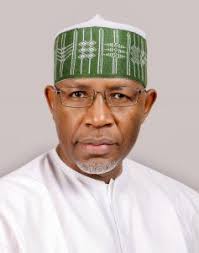The President of the African Energy Chamber (AEC), NJ Ayuk, on Friday urged the Nigerian Government to fast-track the Legislature’s ongoing deliberations on the Petroleum Industry Bill 2020 and enact it in view of its positive implications for improved investments in the continent’s energy sector.
Ayuk, in an opinion article titled ‘Africa needs Pragmatic Free Market policies to attract capital into Gas markets’ distributed by the African Press Organisation (APO) Group on behalf of the AEC, recalled that at the International Petroleum (IP) Week on February 25, 2021, he commended Nigeria for its efforts in driving gas monetization, but also noted that the energy industry and hardworking people remained frustrated by the delays and inability to pass and sign the Petroleum Industry Bill.
He said: “There needs to be that fierce sense of urgency of now especially in the era of the energy transition. The Petroleum Industry Bill (PIB) needs to be passed as it allows energy companies to turn their attention to producing energy that drives our economies.
“It will allow politicians to focus on other pressing matters like the African Continental Free Trade Area (AfCTA) and security issues.
“Africa is well placed to become a key global supplier of LNG.Mozambique, Nigeria, Equitorial Guinea, Senegal and Tanzania are potential players. But we need to be honest, Africa is falling behind”, the industry expert stated.
On the increasing need for improved capitalization of the sector, the AEC boss expressed serious concern that while capital investment in other regions has increased, it has decreased vastly in Africa.
He pointed out that competition for capital investment in the global LNG industry had become more fierce, adding that for countries that want their resources to be monetized locally and internationally, a number of factors need to be considered and must be done so quickly.
He listed rising (and sometimes reckless) government expenditure, burdensome regulations, and the lack of infrastructure to move Africa’s energy to grow markets as seriously undermining investor confidence in many African countries and must be addressed by the governments
According to him, these challenges are negatively affecting exploration projects and even the ability to attract the capital needed to create jobs, implement the AfCTA and push for Africa wide prosperity.
Ayuk further clarified: “In my many meetings with African leaders, I have made it a point to champion an enabling environment for the energy industry. Many of our policy and regulatory initiatives proposed by governments, along with governance issues are undermining investor confidence and negatively affecting our ability to attract capital and remain competitive.
“We should not forget that we are competing for investment, labor, and capital in an increasingly globalized world.
“I believe in Africa and our people, even during our dark times, that there is always a righteous wind that drives us towards a place where winning is real. We are hardworking people and we have it within us to make this a pivot point in our energy industry and our history.
“Amid the COVID-19 pandemic, some industries, businesses, and segments of the workforce have thrived. But, of course, it has also been a very different story for others. Entire industries have been decimated because people are not able to travel, gather, conduct business or carry out their lives the way they used to.
“For governments to recover, they must seek to not return to excessive regulation or anti-business policies and even sometimes punitive taxes. The positive effects of regulatory relief and pro-business policies on many African economies have attracted investment and ensured FID on many energy projects. Now is exactly the wrong time to further test the resiliency of businesses by hiking taxes or heaping on new regulations that do more harm than good to African and international investors”, he canvassed.




